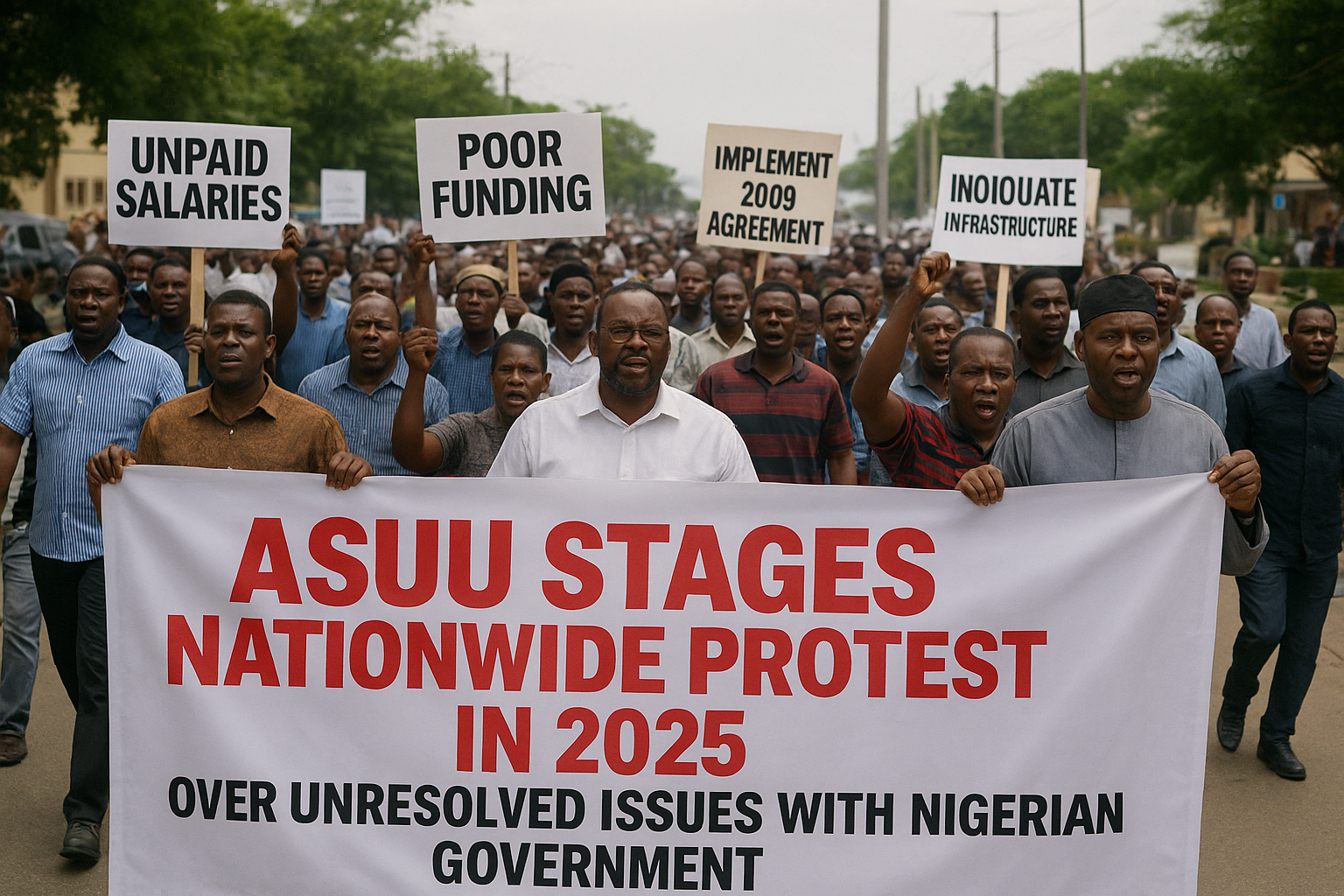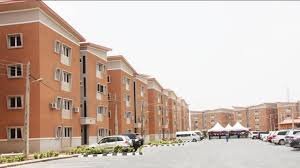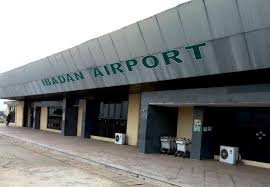The Academic Staff Union of Universities (ASUU) launched a one-day protest across federal and member universities in Nigeria on August 26, 2025, marking its first major action under President Bola Tinubu’s administration.
The protest, which disrupted academic activities nationwide, was a response to long-standing grievances with the federal government, including unpaid salary arrears, poor working conditions, and the failure to implement key agreements.
Reasons for the 2025 Protest
ASUU’s primary grievances center on the federal government’s failure to honor the 2009 ASUU-FGN Agreement, which includes demands for sustainable university funding, renegotiation of salaries, and payment of earned academic allowances. The union highlighted several specific issues:
– Unpaid Salaries and Arrears: ASUU demands the release of three and a half months of withheld salaries from previous strikes, alongside unpaid promotion arrears spanning over four years and outstanding salary awards of 25–35 percent.
– Poor Funding and Infrastructure: The union criticized the government for inadequate funding of public universities, which has led to deteriorating infrastructure and contributed to Nigeria’s declining global university rankings.
– IPPIS Payment Platform: ASUU rejected the continued use of the Integrated Payroll and Personnel Information System (IPPIS), which they argue does not address the specific needs of academic staff. The union prefers the University Transparency and Accountability Solution (UTAS).
– Yayale Ahmed Report: ASUU emphasized the need for the government to implement the recommendations of the Yayale Ahmed report, submitted in February 2025, which addresses key issues between the union and the government.
– Tertiary Institution Staff Loan Scheme: The Calabar Zone of ASUU rejected this scheme, calling it a distraction from the government’s failure to implement a new salary structure or honor existing agreements.
– Victimization and Poor Conditions: The union reported victimization of its members in some universities and highlighted the financial struggles of lecturers, many of whom cannot afford to educate their children or meet basic needs due to unpaid allowances and salaries.
The protests saw widespread participation from universities like the University of Lagos (UNILAG), University of Nigeria, Nsukka (UNN), and Federal University, Otuoke, with academic activities, including examinations, halted for the day. Lecturers marched with placards to draw attention to their plight, as confirmed by ASUU representatives like Kayode Adebayo (UNILAG) and Stanley Boroh (Otuoke).
Last ASUU Strike
The last major ASUU strike occurred in 2022, lasting eight months from February 14 to October 14. It was called off after an appeal court order, with the union citing the government’s failure to address the 2009 agreement, unpaid salaries, and inadequate funding as key reasons. The strike disrupted academic calendars, delayed student graduations, and exacerbated brain drain in the education sector.
Key Reason for the Current Protest
The central reason for the 2025 protest is the government’s continued inaction on the 2009 ASUU-FGN Agreement, particularly the failure to implement the Yayale Ahmed report’s recommendations. ASUU leaders, including Prof. Abiodun Olaniran (Southwest Zonal Coordinator), stressed that this report represents years of negotiations and is critical to restoring industrial peace. The union views the government’s delay tactics as a sign of insincerity, pushing lecturers to the brink of frustration.
Government Response
As of August 26, 2025, the federal government has not issued an official response to the protests, according to available reports. However, ASUU has given the government until August 28, 2025, to address its demands, as stated by the National Executive Council (NEC).
Previous engagements, such as promises made in the 2025 budget to address ASUU’s concerns, have been met with skepticism due to a history of unfulfilled commitments. For instance, in March 2025, ASUU suspended a planned strike after the government promised to act on the 2009 agreement and release funds, but the union claims no significant progress has been made.
President Bola Tinubu has previously intervened in ASUU matters, notably in 2022, when he approved a partial waiver of the “No Work, No Pay” policy, releasing four months of withheld salaries from the 2022 strike.
However, no new actions or statements have been reported in response to the current protests. ASUU leaders, including Prof. Al-Amin Abdullahi (Abuja Zone), have urged the government to act swiftly to avoid further escalation, warning that a full-scale strike could follow if demands remain unmet.
The protests reflect deep frustration with the government’s handling of Nigeria’s public university system, with ASUU calling on stakeholders like the National Assembly and the Nigerian Inter-Religious Council to intervene and prevent further disruptions.





















